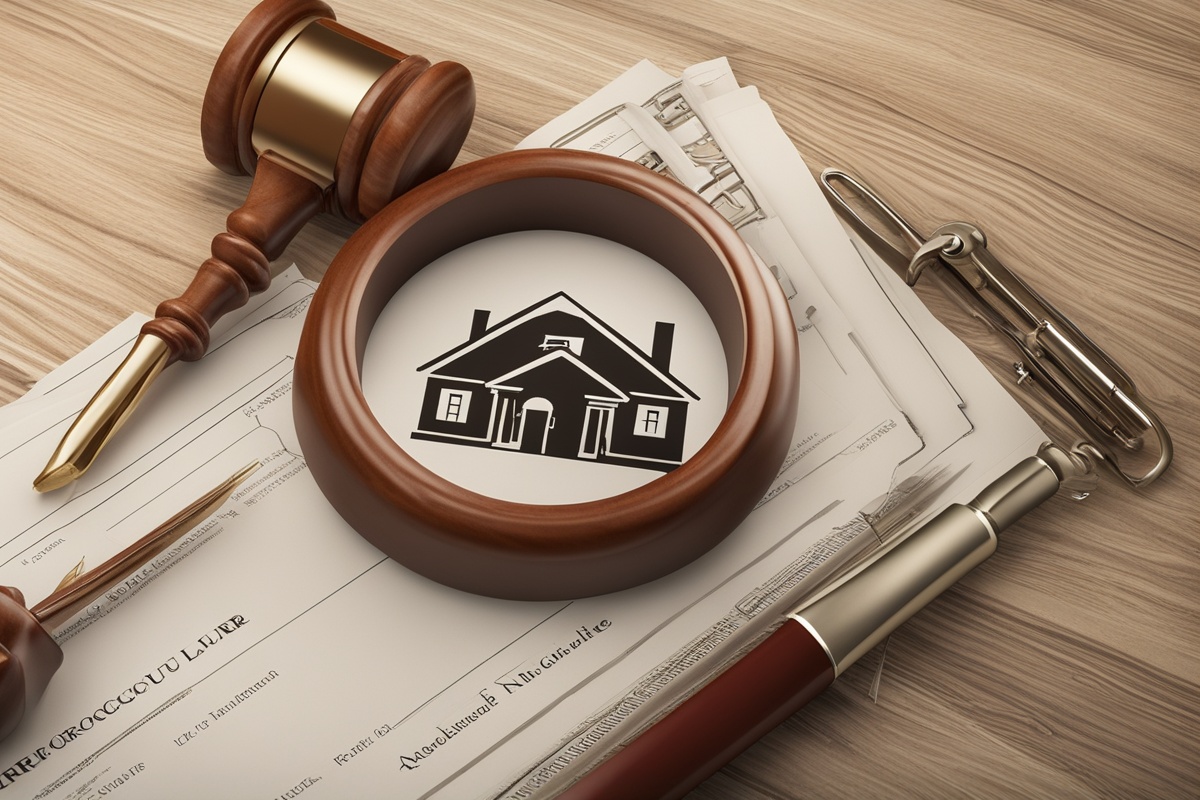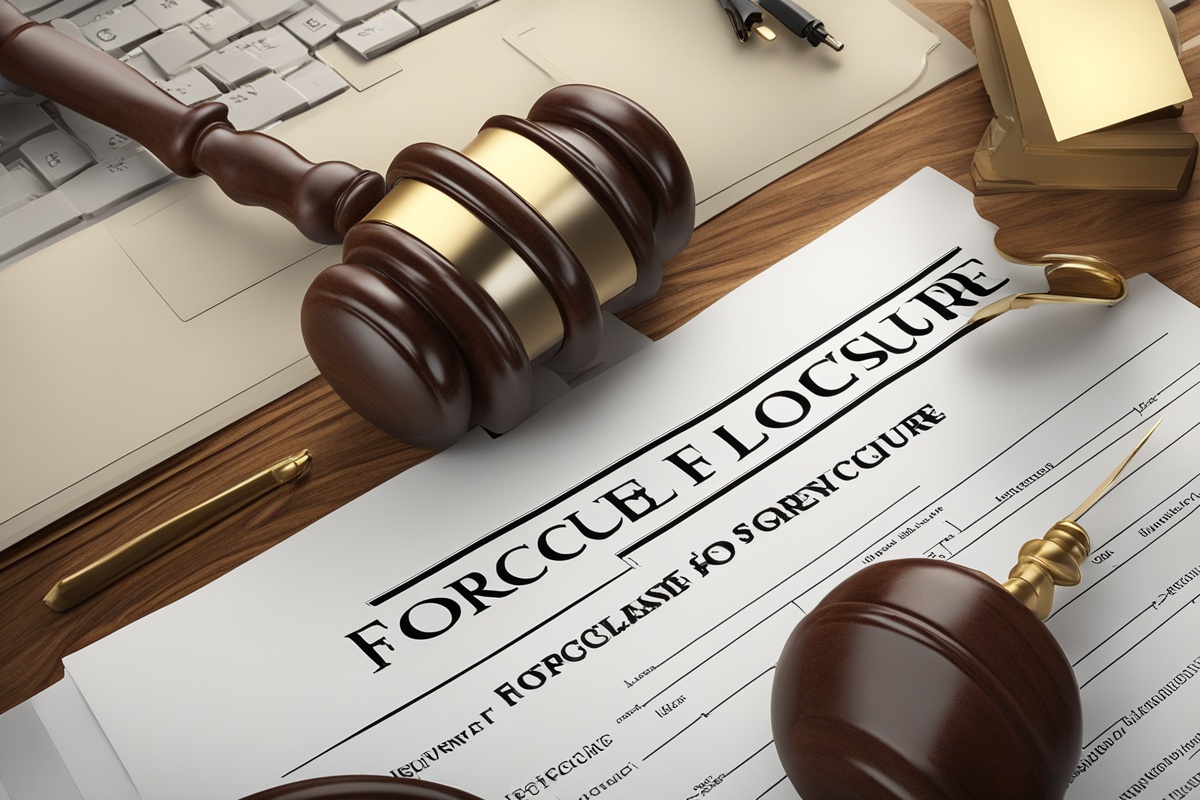Home repossession disputes can be some of the most emotionally and legally challenging situations a homeowner may face. When a lender initiates foreclosure proceedings, the stakes are high, and the process is often riddled with legal complexities. Navigating complex home repossession disputes requires a deep understanding of foreclosure laws, a strategic approach to litigation, and often the assistance of experienced legal counsel. In this comprehensive guide, we’ll explore the critical aspects of handling these disputes, from understanding the foreclosure process to defending your rights in court.
Understanding the Basics of Home Repossession and Foreclosure
Home repossession, commonly referred to as foreclosure, occurs when a lender seeks to reclaim a property due to the homeowner’s failure to meet mortgage payment obligations. This process varies by state, with some following judicial foreclosure (court-supervised) and others non-judicial foreclosure (out-of-court) procedures. Navigating complex home repossession disputes begins with understanding the specific laws and regulations in your jurisdiction, as they dictate the timeline, required notices, and available defenses. For instance, judicial foreclosures often provide more opportunities for homeowners to contest the action in court, while non-judicial processes may require swift action to halt the sale of the property.
Common reasons for foreclosure include missed mortgage payments, financial hardship, or violations of loan terms. However, disputes arise when homeowners believe the lender has acted unfairly, made errors in documentation, or failed to follow legal protocols. Recognizing these issues early is key to building a strong case.
Common Challenges in Home Repossession Disputes
Navigating complex home repossession disputes often involves overcoming several hurdles. One of the most frequent challenges is proving lender misconduct, such as predatory lending practices or errors in loan servicing. For example, a lender might misapply payments, charge excessive fees, or fail to provide proper notice before initiating foreclosure. These errors can form the basis of a defense, but they require meticulous documentation and legal expertise to present effectively in court.
Another challenge is the emotional toll of facing foreclosure. Homeowners may feel overwhelmed by the prospect of losing their home, which can hinder their ability to respond strategically. Additionally, the financial burden of legal fees and ongoing mortgage payments can exacerbate the situation, making it critical to explore options like loan modifications or mediation early on. For more insights on managing foreclosure stress, check out our post on Coping with Financial Stress During Foreclosure.
Legal Defenses in Foreclosure Litigation
When navigating complex home repossession disputes, leveraging legal defenses can make a significant difference in the outcome. Some common defenses include challenging the lender’s standing to foreclose, which questions whether the lender legally owns the mortgage note. This defense has gained traction in cases where loans were sold or transferred multiple times, leading to unclear ownership records.
Other defenses include alleging violations of federal laws like the Truth in Lending Act (TILA) or the Real Estate Settlement Procedures Act (RESPA), which protect consumers from unfair lending practices. Homeowners can also argue that the lender failed to comply with state-specific foreclosure procedures, such as providing adequate notice or offering mediation. Working with an attorney who specializes in foreclosure litigation is often necessary to identify and pursue these defenses. Learn more about federal protections in our guide to Understanding Federal Foreclosure Laws.
Exploring Alternatives to Foreclosure
Before diving into full-scale litigation, homeowners should consider alternatives to foreclosure as part of navigating complex home repossession disputes. Loan modification programs, for instance, allow borrowers to renegotiate the terms of their mortgage to make payments more manageable. Similarly, a short sale—selling the property for less than the owed amount with lender approval—can help avoid the long-term damage of a foreclosure on one’s credit report.
Mediation is another valuable option in many states, offering a neutral platform for homeowners and lenders to negotiate a resolution. These alternatives can save time, money, and emotional distress compared to a prolonged court battle. For a deeper dive into these options, read our article on Loan Modification vs. Foreclosure: What’s Right for You?.
The Role of Legal Representation in Foreclosure Disputes
Navigating complex home repossession disputes without professional help is often a risky endeavor. A qualified foreclosure attorney can assess the specifics of your case, identify potential defenses, and represent you in court or negotiations. They can also help file motions to delay or stop foreclosure proceedings, giving you time to explore alternatives or gather evidence.
Legal representation is particularly crucial in cases involving fraud, dual-tracking (when a lender pursues foreclosure while simultaneously offering a loan modification), or violations of consumer protection laws. An attorney can also guide you through bankruptcy options, such as Chapter 13, which can temporarily halt foreclosure and allow for a repayment plan. For tips on finding the right lawyer, see our post on Choosing a Foreclosure Attorney: Key Considerations.
Steps to Take When Facing a Home Repossession Dispute
If you’re facing a potential foreclosure, taking proactive steps is essential for navigating complex home repossession disputes. First, review all correspondence and loan documents from your lender to identify any discrepancies or errors. Keep detailed records of payments, notices, and communications, as these can serve as evidence if a dispute arises.
Next, respond promptly to any foreclosure notices and seek legal advice as soon as possible. Many homeowners delay action, hoping the situation will resolve itself, but this often leads to missed deadlines and lost opportunities to defend their rights. Finally, stay informed about your state’s foreclosure laws and explore resources like government housing counseling programs. For additional guidance, check out our resource on Emergency Steps to Take During Foreclosure.
Disclaimer: The information provided in this article is for general informational purposes only and should not be construed as legal advice. Every home repossession dispute is unique, and outcomes depend on specific circumstances and applicable laws. We strongly recommend consulting with a qualified attorney or legal professional in your jurisdiction to address your individual situation. The authors and publishers of this content are not responsible for any actions taken based on the information provided herein.
References
- Consumer Financial Protection Bureau: What is Foreclosure?
- U.S. Department of Housing and Urban Development: Avoiding Foreclosure
- Nolo: Foreclosure Defenses and Ways to Fight Foreclosure
- Federal Trade Commission: Mortgage and Foreclosure Scams
- American Bar Association: Foreclosure Help for Consumers
This content is for informational purposes only and not a substitute for professional advice.





